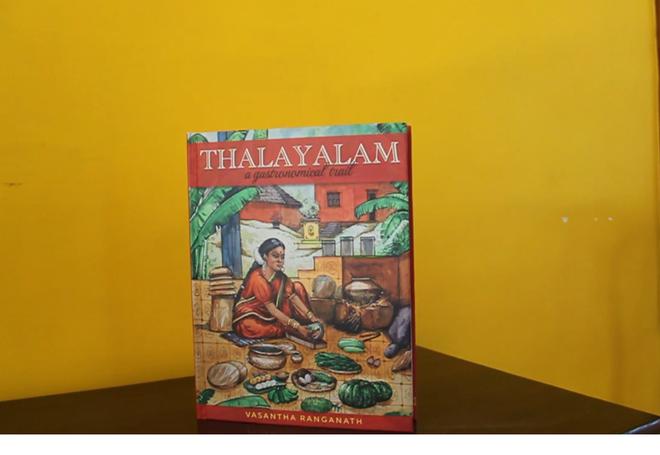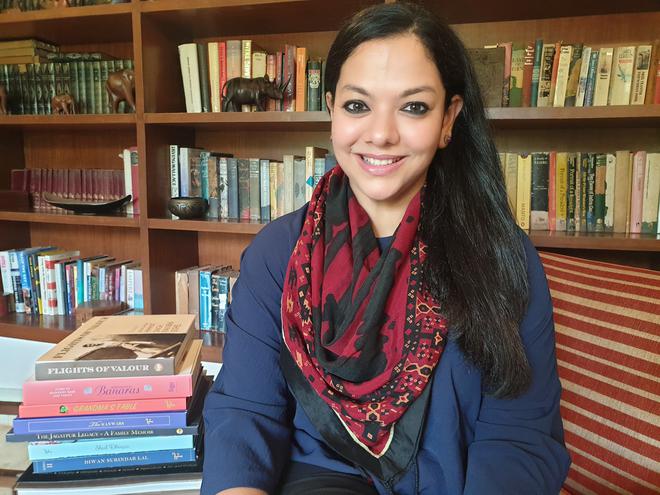Seven years ago, Samrata Salwan Diwan started working on a passion project: putting together her family’s history in a book for her maternal grandmother. “Growing up, my grandparents would recount captivating tales about their lives, spanning their childhood, the ancestral home, friends, cousins, and the challenges of forced migration during Partition. My paternal great-grandfather and the family, compelled by the events of Partition, had to leave Peshawar and move to Delhi as refugees,” she says, adding how the project led her to create similar projects for others.
A year later, New-Delhi based Samrata launched Family Fables Co., a publishing company that helps individuals, families and institutions document everything from family histories to recipes. “It’s disheartening that many of these stories are gradually fading with time. We often underestimate the value of our experiences and, on a broader scale, our family histories. While there is an inherent curiosity about our roots, we sometimes find ourselves unsure of which questions to ask,” adds Samrata who holds a postgraduate degree in International Relations from the School of Oriental and African Studies, University of London.

Till date, Family Fables Co. — featuring a team of writers, editors and designers — has published over 40 books comprising family history books, memoirs, biographies, cookbooks and institutional histories.
Story to book
For those keen on documenting their personal projects, Samrata, 39, says the process begins with the team considering the subject matter and seeing which members would be the most genuinely excited about the project. “Secondly, we evaluate the requirements of each project. While we offer end-to-end service, some projects come to us at different stages. Some may need more research; others may need a focus on refining the narrative,” she explains, adding how their most recent food memoir project, Thalayalam, was penned entirely by hand during the pandemic years by the author, Vasantha Ranganath. “Food memoirs, like Thalayalam, are more than just a collection of recipes and instructions — they are a living extension of documenting family histories. They help preserve cultural memories and family traditions, acting as meaningful reflections on historical events.”
Samrata adds how a family history book takes approximately eight-12 months to complete and publish. “We manage the entire process, encompassing content collection, writing, design, and printing. The decision on the number of copies is left to the family’s discretion, and as the books are digitally printed, it allows for flexibility,” she says, adding that projects are priced depending on the scope of work and can go up to a few lakhs.
Heirlooms and family trees
There are several themes and formats that can be chosen from as well. Samrata says most projects are heritage stories, with ‘family’ occupying a prominent theme. “Family history is an incredibly diverse subject, encompassing oral accounts of previous generations, ancestry, recipes, remedies, photographs, documents, folk songs, family heirloom pieces, and the construction of a family tree. Capturing family history can take various forms, each offering a unique perspective,” she says, adding, “For instance, we have undertaken a couple of projects where we delved into a family’s culinary journey, tracing their history through food and preserving cherished, handed-down recipes in a cookbook.”
Like in Thalayalam, Samrata says, “Vasantha invites readers to join her seven-decade culinary journey, blending ancestral recipes with contemporary flair. Each recipe serves not only as a cooking guide but as an invitation to discover new dishes, folklore, and heartwarming anecdotes that echo her life, travels, and the soul of her kitchen.”

Reminiscing about her childhood tradition of spending every Saturday at her maternal grandmother’s house, Samrata says it was all about hearing stories. “Her (grandmother) father, PN Deogun, had attended the Indian Congress session in Amritsar in 1919 where he dragged Lokmanya Tilak’s cart through the bazaars, saved Mahatma Gandhi from being crushed against a wall by a crowd… it was Lala Lajpat Rai who gave him the most important life lesson to complete his education, which he did and went on to join the Indian Forest Service in 1924. He retired as the Chief Conservator of Forests. Nani would regale us with stories of growing up in the jungles of Chamba.”
And it is these very stories that Samrata says she wanted to preserve, and believes every home has such extraordinary tales. “It’s common to become engrossed in the lives of others, particularly celebrities. But often, the most touching and inspiring experiences come from our grandparents or people we personally know. Every family has something worthwhile to share. It’s not necessary to be famous or to have achieved a certain level of success in life to feel the importance of documenting one’s story,” she concludes.
For details, visit familyfablescompany.com/







